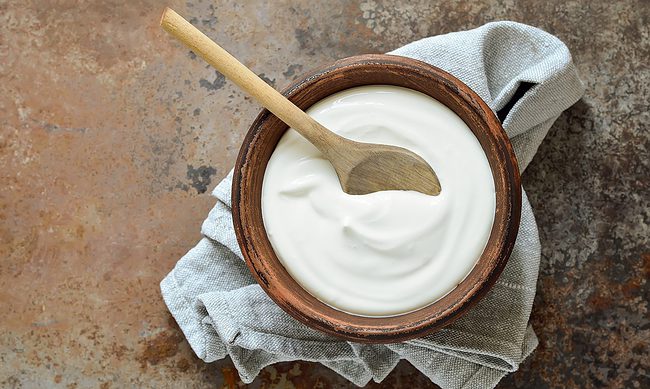Spinach Dip With Greek Yogurt And Extra Virgin Olive Oil
Bringing the Mediterranean diet to your Thanksgiving feast and incorporating the best olive oil to deliver health benefits as part of your Thanksgiving celebrations Spinach with Greek yogurt is a simple appetizer for your next Thanksgiving feast. You can also add sautéed onions and carrots and a touch of mayo and parmesan cheese for additional … Read more
Purchase Evoo
-
Amount
-
Time
-
Course
Starters & Salads
Bringing the Mediterranean diet to your Thanksgiving feast and incorporating the best olive oil to deliver health benefits as part of your Thanksgiving celebrations
Spinach with Greek yogurt is a simple appetizer for your next Thanksgiving feast. You can also add sautéed onions and carrots and a touch of mayo and parmesan cheese for additional flavour. This dip is great because there are so many things to serve with it. Try any combination of the following dippers: carrot sticks, celery stalks, zucchini strips, radish slices, broccoli or cauliflower florets.
What Is Spinach?
Spinach is a great staple to add to your diet. This leafy green vegetable grows all year round and is packed with vitamins and minerals.
There are two basic types of spinach: flat-leaf and savoy. When you buy fresh, bunched spinach at the grocery store, it is usually savoy spinach. The leaves of savoy spinach are typically wrinkled and curly. Flat spinach, also known as baby spinach, is widely popular in the U.S. and is often sold bagged, canned, or frozen.
Ingredients
Total
- 1 tablespoon Morocco Gold extra virgin olive oil
- 1 small onion
- 2 cloves garlic
- 1/4 cup carrots, grated
- 10 ounces spinach
- 1 cup Greek yogurt
- 1/2 cup parmesan cheese
- 1/4 cup light mayo
- 1 teaspoon salt
Instructions
Total
- Start the recipe by sautéing the onions and carrots. Add 1 TBSP of extra virgin olive oil to a skillet over medium-high and heat for 1 minute. Then, add the diced onion and grated carrots. Sauté until the onions are translucent (about 3-4 minutes). Then, add the garlic and cook an additional minute. Stir in the spinach.
- Blend the sauce together. Turn your stovetop to a low heat while you blend the sauce together. In a small bowl combine: yogurt, parmesan cheese, mayo, salt. Stir together until mixed.
- Next, add the yogurt sauce to the skillet with the sautéed vegetables. Stir well and continue to heat until warm.
- After the dip is warm, remove from the heat and pour into a serving bowl. Drizzle with some more extra virgin olive oil.
From The Larder
Health Benefits
Though not the most exciting of foods, the health benefits of eating spinach are abundant:
Lower Blood Pressure
Spinach is rich in several minerals that your body needs, including potassium. Consuming foods that are high in potassium helps lower your blood pressure.
Healthy Eyes
Spinach is an excellent source of lutein, an antioxidant known to protect against age-related eye diseases such as macular degeneration and cataracts. Studies have found that people who take lutein supplements are at a lower risk for macular degeneration, which is the leading cause of vision impairment and blindness.
Cataracts are an eye condition caused by oxidation of the lens of the eye. Studies have shown that lutein appears to prevent ultraviolet damage to your lenses. One study found that women who had a higher dietary intake of lutein were 23% less likely to develop cataracts than those who had a low-lutein diet.
Improved Cognition
Lutein has also been shown to help preserve cognitive abilities. Studies of older adults have shown that those with higher lutein levels exhibited better verbal fluency, memory, reasoning ability, and processing speed than those with low amounts of the nutrient.
Healthy Bones
Vitamin K is essential to bone health and growth, and spinach is packed with it. Eating just one cup of spinach fulfills the recommended daily amount of Vitamin K your body needs.
Healthy Skin
The vitamin A in spinach is used by your body to grow tissues, including the largest organ in your body, skin. Not only does Vitamin A support the skin’s immune system (preventing disease and damage), but it also helps skin stay hydrated, reducing the appearance of fine lines and wrinkles.
Healthy Blood
Spinach is an excellent source of iron, which helps your body make haemoglobin. Haemoglobin is needed to transport oxygen from your lungs to the rest of your body. This is why one of the primary symptoms of iron deficiency is heavy fatigue.
What Is Greek Yogurt?
Greek yogurt is a protein-rich dairy product with a variety of culinary uses. It’s an excellent source of a number of nutrients and may even offers a few health benefits. However, it’s important to choose the right type of Greek yogurt, as many can be packed with additives like added sugar.

Yogurt is a dairy product that has been consumed since ancient times. In fact, the Greeks were the first to document the use of yogurt in 100 BC. The word “yogurt” is believed to have come from the Turkish word “yoğurmak,” which means to thicken, curdle, or coagulate.
Many types of yogurt are available, including Greek-style, which has a higher protein content than other yogurt products. Greek yogurt, often referred to as “strained” yogurt, is made by fermenting yogurt in tanks and then straining whey and other liquids during the final processing steps.
The process results in a thicker product with a higher protein content. Additionally, some food manufacturers produce Greek-style yogurt by adding milk proteins to the yogurt at the beginning or end of processing.
Greek yogurt comes in many varieties, including full fat, reduced fat, and fat-free, as well as flavoured and unflavoured. Greek yogurt is high in many nutrients and a good source of protein, fat, and carbs, depending on the brand you choose.
Greek yogurt provides a number of nutrients and is particularly rich in protein, vitamin B12, riboflavin (B2), and selenium. It’s also a good source of calcium, phosphorus, zinc, pantothenic acid, vitamin A, and potassium. Additionally, Greek yogurt contains smaller amounts of nutrients like magnesium, choline, and copper.
Compared with regular yogurt, Greek yogurt is higher in protein and lower in carbs.
Greek yogurt health benefits
Greek yogurt has been linked to several health benefits.
Good source of protein and other nutrients
One of the main benefits of Greek yogurt is that it’s rich in protein, a macronutrient needed for virtually all chemical reactions in the body, healthy immune function, tissue repair, and more. Greek yogurt is rich in essential vitamins and minerals including B12, selenium, and zinc — all of which play important roles in supporting your health.
For example, both zinc and selenium are required for optimal immune function, while B12 is needed for red blood cell formation, nervous system function, and energy production.
May benefit bone health
Greek yogurt contains a number of nutrients that are necessary for maintaining the health of the skeletal system, including protein, calcium, magnesium, and phosphorus. Not only are the nutrients found in Greek yogurt required for bone health maintenance, but eating Greek yogurt may even help increase bone formation.
Yogurt intake has also been linked to greater bone mineral density and a lower risk of osteopenia and osteoporosis among older adults.
May support gut health
Research suggests that eating yogurt regularly may help support a healthy digestive system by increasing bacterial diversity in the guts of some people. However, the type of Greek yogurt consumed matters. Purchasing yogurt with a “Live & Active Cultures (LAC) seal” ensures that the yogurt contains a significant amount of beneficial bacteria or probiotics, which may help support gut health. It is however important to only choose unsweetened Greek yogurt.
May support muscle recovery and healthy body composition
Consuming enough protein is essential for promoting overall health and muscle recovery. Greek yogurt is a great post-workout snack option for athletes. Its high protein content may promote muscle protein synthesis and recovery.
May help keep you full and support a healthy body weight
Protein is the most filling macronutrient, and adding sources of protein such as dairy to meals and snacks is a smart way to help you feel satisfied between meals. Because yogurt is a filling, protein-rich food, choosing yogurt and other high protein foods over less filling foods can help support a healthy body weight.
Important Disclaimer
The information provided on this website is for general informational purposes only. All content, including text, graphics, images, and information, is presented as an educational resource and is not intended as a substitute for professional medical advice, diagnosis, or treatment.
Please consult with a qualified healthcare provider before making any decisions or taking any action based on the information you find on this Website. Do not disregard, avoid, or delay obtaining medical or health-related advice from your healthcare provider because of something you have read on this Website.
If you think you may have a medical emergency, call your doctor, go to the nearest emergency department, or call emergency services immediately. We are not responsible for any adverse effects resulting from your use of or reliance on any information or content on this Website.
By using this Website, you acknowledge and agree to this disclaimer in full.



